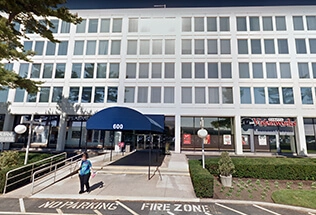No-fault insurance is a system designed to make it easier to handle auto insurance claims by providing benefits regardless of who is at fault in an accident. Several states have no fault insurance, and some states use modified versions of the no fault system. The system your state uses can determine the way you receive compensation after you’ve been involved in a car crash.
If you or a loved one is trying to recover damages after a car crash, the experienced New York car crash and personal injury attorneys at Schwartzapfel Lawyersare prepared to fight for you. Call us now at 516-342-2200 or schedule your free consultation online today. No matter your situation, it will be our honor and privilege to help you as best we can, however we can, both in and out of court.
What Is The Meaning Of A No-Fault State?
No-fault insurance, also known as personal injury protection (PIP), is a type of auto insurance coverage that allows you to be reimbursed by your own insurance company for medical expenses, lost wages, and other costs resulting from an auto accident.
Under no-fault laws, it doesn’t matter who caused the accident; you’re still entitled to certain types of compensation from your insurance provider.
No-fault insurance can be a blessing in situations where someone is injured and has an emergency need for financial assistance. No-fault insurance solves three (3) major pain points for people who endure serious car accidents:
Reducing Lawsuits
Without no-fault insurance, fault percentages need to be legally determined to decide how much a party is owed and whose insurance is responsible for paying them. No-fault insurance reduces congestion in the court system so the courts can focus on more serious matters.
Getting Compensation To The People Who Need It
Policyholders receive quick compensation for medical bills and lost income. This can prevent financial disasters for people who may have been living paycheck to paycheck and suddenly lost their motor vehicle and, by extension, their ability to work.
Everyone Is Treated Equally
No-fault insurance provides a standard level of coverage to all insured individuals, regardless of their financial situation or the severity of the accident. There’s no reason to wait for an unpredictable settlement that may be less than what you’d hoped. Knowing what to expect can help you prepare for the future.
How Does No-Fault Insurance Work?
When a car accident occurs under a no-fault insurance system, a claim is submitted to each driver’s insurance company. It doesn’t matter who was responsible for the accident.
No-fault is different from traditional insurance, which uses a tort system. A tort system requires that fault be assigned to one or both people, and the at-fault driver’s insurance typically covers damages.
No-fault insurance offers PIP. PIP coverage usually includes medical expenses, lost wages, and sometimes other benefits like funeral expenses if someone passes away in a crash. You file a claim with your insurance company immediately after the accident, and they’re required to pay out what you’re owed under PIP as promptly as possible.
Much like with traditional auto insurance, some states can allow no-fault insurance companies to raise your premiums if they believe you were substantially at fault in your accident. They can’t reduce the amount they’re required to pay you if they believe you’re at fault. However, they are allowed to conduct an independent fault investigation and use their findings to raise your monthly payment.
To learn more now, call the award-winning team of Schwartzapfel Lawyers at 516-342-2200 or schedule your free consultation and/or case evaluation online today. Your future is worth fighting for. Call now!
Are There Exceptions To No-Fault Insurance?
Some no-fault states still allow lawsuits for severe injuries or cases involving substantial property damage.
In some states with no-fault insurance exceptions, there are thresholds that must be met before an individual can file a lawsuit against the at-fault party. These thresholds often involve meeting a certain dollar amount in medical expenses or proving the severity of injuries.
States with exceptions usually only allow people to file claims if the damages they can prove amount to substantially more than what their insurance company paid out. In other words, you can’t “double dip” for extra money after a car crash if the payment you received was technically enough to cover the types of expenses you were entitled to recover.
States With No-Fault Insurance
No-fault insurance laws vary significantly across the United States. Most states still use the tort system for auto accidents. Some states have adopted pure no-fault systems, while others have modified no-fault systems.
Every state not listed is an at-fault state with insurance requirements that involve comparative negligence, which means that each driver’s tort liability for an accident is assigned in percentages.
No-Fault States
No-fault insurance states have the flexibility to customize their no-fault auto insurance laws. In point of fact, the following states have incorporated no-fault auto insurance policies in various forms:
- Florida
- Hawaii
- Kansas
- Kentucky
- Massachusetts
- Michigan
- Minnesota
- New Jersey
- New York
- North Dakota
- Pennsylvania
- Utah
To reiterate, while these states are no-fault in nature, auto insurance laws can and do vary state to state. Michigan, for instance, has a pure no-fault system with unlimited personal injury protection benefits. Here, it is also worth noting that unlimited PIP can lead to higher insurance premiums.
Many Michigan drivers feel that motorist coverage is a double-edged sword. Michigan drivers often pay more for motorist coverage, but they’ll also receive all the benefits they need if they’re ever involved in a crash.
New York being a no-fault state means you still may be able to recover additional damages depending on the severity of your crash. If you believe you’re entitled to more than what you received through PIP, the experienced New York car crash attorneys at Schwartzapfel Lawyersare ready to review your case.
Remember, it’s absolutely critical that you speak with a skilled lawyer before contacting your insurance company to ensure that your rights are maintained. To that end, simply dial 516-342-2200 for a free consultation and so much more.
Don’t wait until it’s too late and your window to recover financially is closed forever. Instead, act now and have Schwartzapfel Lawyers fight — and win — for you!
Add-On No-Fault States
Some states allow drivers to add no-fault personal injury protection (PIP) to their insurance policies. PIP assures that people receive prompt compensation after an accident, which is why so many people choose to add it when they have the option.
Then, too, certain states require that drivers carry auto insurance along with no-fault PIP. Significantly, these states include:
- Arkansas
- Delaware
- Washington, D.C.
- Maryland
- New Hampshire
- Oregon
- South Dakota
- Texas
- Virginia
- Washington
- Wisconsin
Note: Even if you collect PIP compensation in these states, you can still file a claim against an at-fault driver for damages above and beyond what was covered by your PIP payout.
Choice No-Fault States
Almost all states mandate the type of insurance that drivers need to have, but three (3) states allow drivers to choose the way they want their auto insurance to work.
- Kentucky
- New Jersey
- Pennsylvania
In these states, you’re able to decide if you want to use traditional car insurance or no-fault car insurance. You’re only required to hold a policy — it doesn’t matter which type of policy you choose.
The Pros And Cons Of No-Fault Insurance
No-fault car insurance is a popular way for states like New York to reduce the time car crash cases spend in court. People can rebound much quicker, and cases can end in a timely manner.
While the system works great for many drivers, some may not be so lucky. No-fault insurance may not be sufficient for them, especially if they were involved in a serious accident that was the other driver’s fault.
The Benefits Of No-Fault Car Insurance
No-fault insurance streamlines the process of payouts and reduces the amount of time and money people spend in court.
- Get Paid Fast: One of the biggest benefits of no-fault insurance is that policies pay out quickly for medical expenses and lost wages. Policyholders don’t have to wait for a lengthy court process to determine fault before they receive the compensation they need to cover immediate costs after an accident.
- Limited Use Of The Court System: By eliminating the need to determine fault in most accidents, no-fault insurance reduces the number of lawsuits filed. Legal costs stay down, courts aren’t backed up, and no one has to wait.
The Disadvantages Of No-Fault Car Insurance
While no-fault insurance can bring about a speedy payout, that payout sometimes won’t be enough. Accordingly, no-fault policies can cause individuals to feel as though they were under-compensated. Moreover, when assessing no-fault insurance policies, one ought to consider such factors as:
- Higher Premiums: No-fault insurance can lead to higher premiums compared to traditional car insurance. The comprehensive coverage provided under PIP, which includes medical expenses, lost wages, and other benefits, is expensive for insurance companies to provide. They pass the cost along to policyholders.
- Limited Legal Options: In some states with no-fault insurance, policyholders lose their ability to sue for pain and suffering or similar damages unless specific thresholds are met. Some people may still be owed more compensation that they aren’t allowed to pursue because injury claims are limited and there may be a cap on compensation for medical costs.
With all this in mind, it is important to carefully evaluate the potential trade-offs of no-fault insurance before choosing a policy.
Need Legal Assistance With Your Car Crash Case?
No-fault insurance isn’t the perfect solution for everyone in every case. For instance, there may be times when you’re rightfully owed far more than your personal injury protection policy allows you to collect.
As such, if you or a loved one has been involved in a car crash that wasn’t your fault, an experienced New York law firm like the personal injury attorneys at Schwartzapfel Lawyerscan make all the difference in getting you all the money and benefits you deserve.
So, please, don’t leave your financial future to chance. Protect it today by dialing 516-342-2200 now, or schedule your free consultation online at your earliest convenience.
One phone call may save you miles of headache, heartache, and financial strain down the road. Call now for a friendly ear as well as tried-and-true advice that we hope will bring you endless peace of mind.
DISCLAIMER: Nothing on this page should be considered legal advice. You should seek the appropriate counsel your situation requires. For more information, call 516-342-2200 now!
Sources:
Schwartzapfel Lawyers, P.C. | Fighting For You
Minimum Auto Insurance Requirements | New York State Department of Financial Services
















